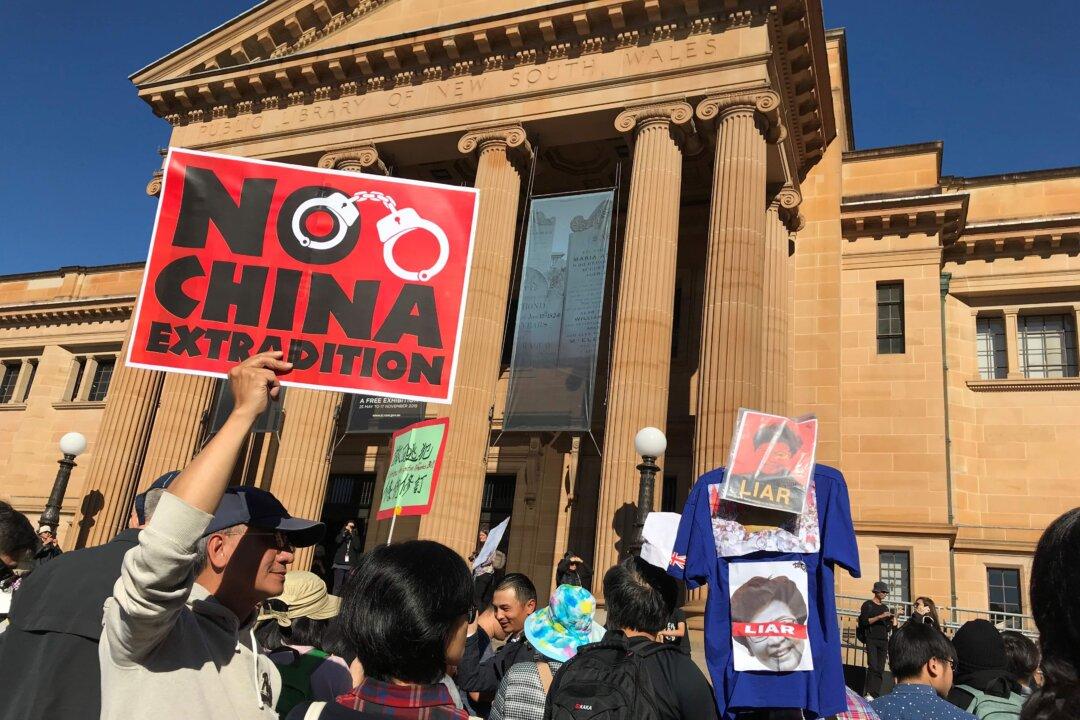SYDNEY—Discontent in Hong Kong over a move to allow extraditions to mainland China spilled over into Australia on Sunday, with Australian Chinese gathering for a protest urging the Australian government to condemn the proposed new law.
Accountant Ida Lee, one of around 2,000 people who gathered in central Sydney, told Reuters she valued her freedom of speech, and that expatriates feared being seized by China as they traveled through Hong Kong.





